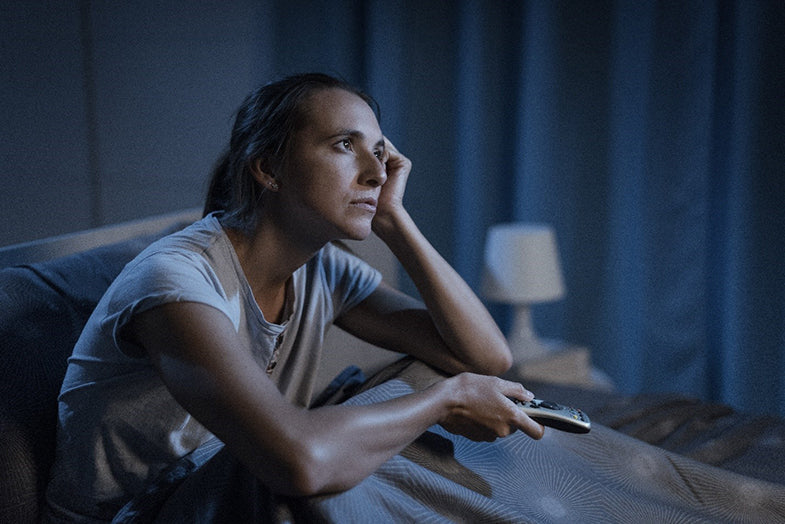Study finds dim light can mess up sleep, cause health issues
- A new study finds that even a small amount of dim light can affect a healthy person’s sleep so much that it can impact their blood sugar levels and heart rhythm in ways tied to devastating health conditions.
- Being exposed to even a small amount of dim light while sleeping could have a negative impact on your blood sugar levels and heart rate.
- Find out steps you can take to improve your sleeping conditions so you aren’t hurting your health.
Night lights may soon become obsolete. According to a new study conducted at the Northwestern University Feinberg School of Medicine, even just a small amount of dim light while sleeping can be incredibly disruptive and lead to major health issues.
The author of this study, Dr. Phyllis Zee, director of the Center for Circadian and Sleep Medicine, looked at the impact of dim light on sleep. We’ve all fallen asleep in front of a low-volume TV before on the couch. Heck, some people prefer to fall asleep that way. But they will rethink it after reading the results of Zee’s analysis that used 20 subjects in a sleep lab. Even having just one single night of sleep with dim light can lead to elevated heart rate and blood sugar levels in young, healthy adults. The study was published in PNAS this month.
How the dim light sleep study works
The 20 participants, ages 19 to 36, were tested in a sleep lab for two nights in a row. On the first night, all the subjects slept in a very dark room and on the second night half slept in a room exposed to a small light emitting 100lux-equivalent to the TV or street lamp light-and the other half were in the dark room.

During the sleep segments all the volunteers were connected by IV tube so researchers could track their blood levels. Brain waves, heart rates, breathing hormone and melatonin levels were also observed.
When the subjects woke up, their blood sugar levels were tested in two different ways: one measured their insulin and glucose levels combined and the other served people a dose of glucose and then measured their insulin levels in response.
As you may have surmised, the participants who were exposed to dim light showed on average 25% higher levels of insulin as well as a higher heart rate on average. The difference in insulin and heart rate levels for the group in the dark room two nights in a row was negligible.
Why dim light messes up our blood sugar levels
The increase in insulin levels and heart rate is because even the smallest amount of light is disrupting the period of sleep in which the most cellular renewal occurs. More insulin is produced in order to keep your glucose at normal levels which is why your blood sugar goes up.
But wait, it gets worse. This little bit of light exposure also throws off the sympathetic and parasympathetic nervous systems, which are associated with blood pressure issues.
The connection between light exposure and blood sugar levels has been established in previous research but this one shows the driving force — the inability to regulate glucose — as to why someone exposed to unhealthy sleeping habits may tend to be more overweight or even obese.
High blood sugar levels are a sign of insulin resistance, where the body stops using glucose properly and the pancreas goes into overdrive, flooding the body with extra insulin to overcompensate until it eventually loses its ability to do so. Over time, insulin resistance can ultimately lead to Type 2 diabetes.
Dr. Daniela Grimaldi, a co-first author and research assistant professor of neurology at Northwestern, noted that during the experiment none of the subjects were aware of what was happening in their bodies, but the brain does sense it. “It acts like the brain of somebody whose sleep is light and fragmented. The sleep physiology is not resting the way it’s supposed to.”
What can we do about light impacting our sleep?
So what do we do to ensure we aren’t developing diabetes because we like a little light as we sleep? Well, you may want to get better at sleeping in pitch black. A way to do this so you don’t go straight from bright lights and all your surrounding blue screens, to your dark sleeping area. Ease yourself into it by dimming your lights an hour or two before you go to bed, Dr. Zee says.

Also, even though sometimes it is lovely to drift off to an old Seinfeld rerun, blue lights, like the kind emitted from televisions and computers, are the most stimulating. This is worse for your eyes and overall health. Consider powering down all your screens before you go to sleep. Of course you can have your phone on while you sleep but try to not look at it or have it face down.













